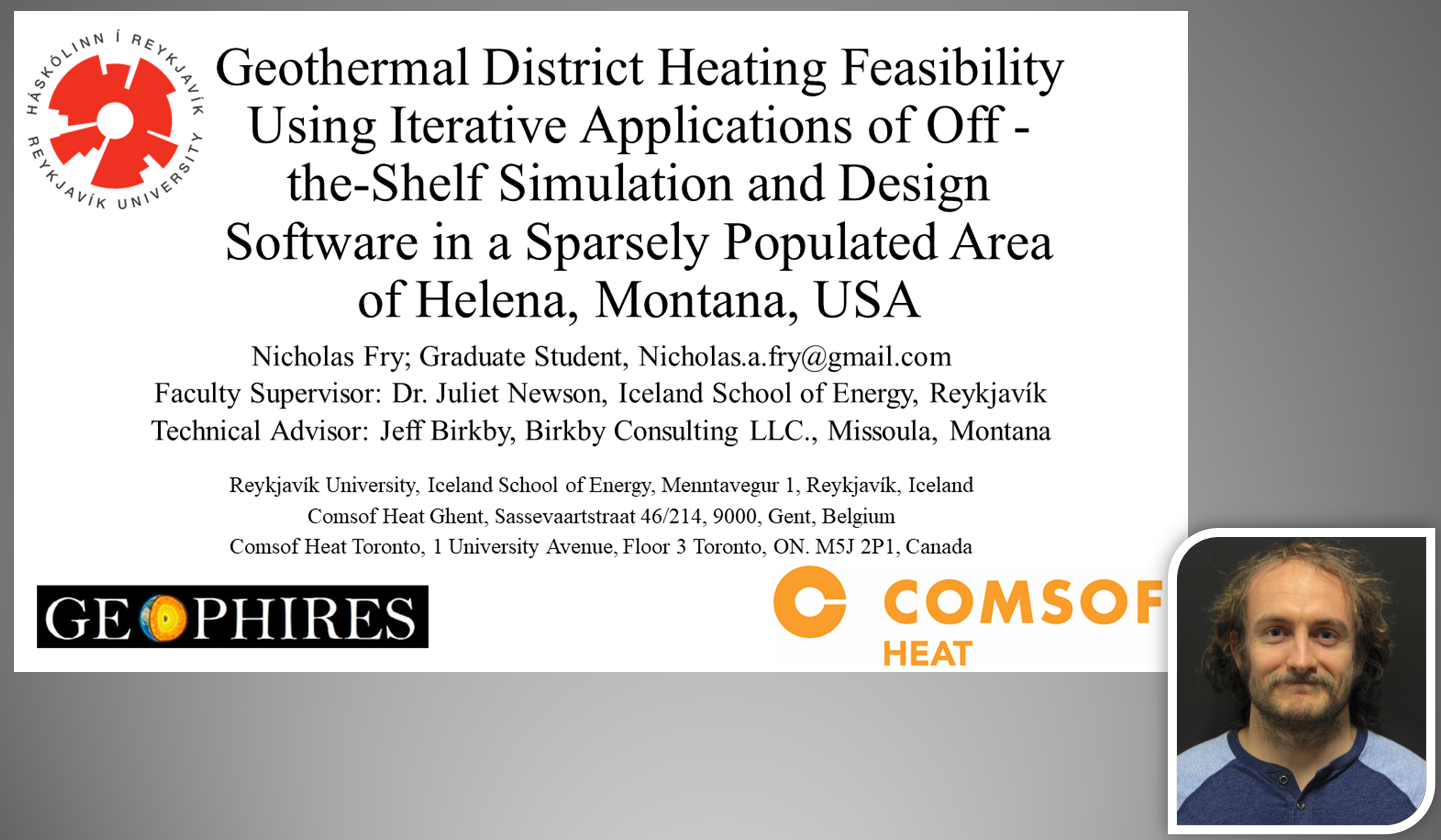MSc Thesis: Geothermal District Heating Assessments Using Iterative Applications of Techno-Economic Simulation and Design Software in a Sparsely Populated Area of Helena, Montana, USA
REYKJAVIK, June 3 - MSc in Sustainable Energy candidate, Nicholas Fry , successfully defended his master's thesis where he performed geothermal district heating assessments using iterative applications of techno-economic simulation and design software in a sparsely populated area of Helena, Montana, USA. Nicholas' work was supervised by Dr. Juliet Newson from Reykjavik University and Jeff Birkby from Birkby Consulting, LLC. With examination by Dr. Páll Valdimarsson from Reykjavik University and Pvald ehf .
 Nicholas begins by explaining that barriers to geothermal district heating (GDH) in the United States include the availability of consumer building heat demand information, which is currently withheld by private gas utility companies, the lack of policy incentives to encourage exploration and construction, and a lack of GDH assessments that leverage modern materials, technology, and design from abroad.
Nicholas begins by explaining that barriers to geothermal district heating (GDH) in the United States include the availability of consumer building heat demand information, which is currently withheld by private gas utility companies, the lack of policy incentives to encourage exploration and construction, and a lack of GDH assessments that leverage modern materials, technology, and design from abroad.
Nicholas's project bypasses proprietary data barriers by developing building heat demand density maps using State of Montana Department of Revenue property information, coupled with residential and commercial building energy consumption surveys. He used a community selection process that weighs the existing public data on geothermal surface manifestations across the State, in this case Nicholas selected a sparsely populated neighborhood in Helena, Montana as a demonstration site.
A deeper review of public geologic, geophysical, and geothermometry reporting reveals enough data for Nicholas to conduct reservoir simulation using the software GEOPHIRES. His project goes on to create a new iterative process of techno-economic simulation and district heating network automation using Comsof Heat software, to develop the first rapid assessment method for GDH.
Nicholas used eleven production test cases to serve as the basis to determine the efficacy of 44 GDH design schemes and potential outcomes, including augmentation with a peaking boiler. Quotes from local and international vendors of the most technologically advanced components and controls for GDH reveal whole system levelized costs of heat.
Using existing policy incentives in the State of Montana, his results also indicate potential revenue pressure relief for GDH operations, through financing and ownership options. Nicholas' results indicate costs for a GDH system that approach price parity with natural gas, giving policymakers an attractive option to consider in efforts to decarbonize America's building stocks.
Congratulations Nicholas for an excellent thesis defense!
